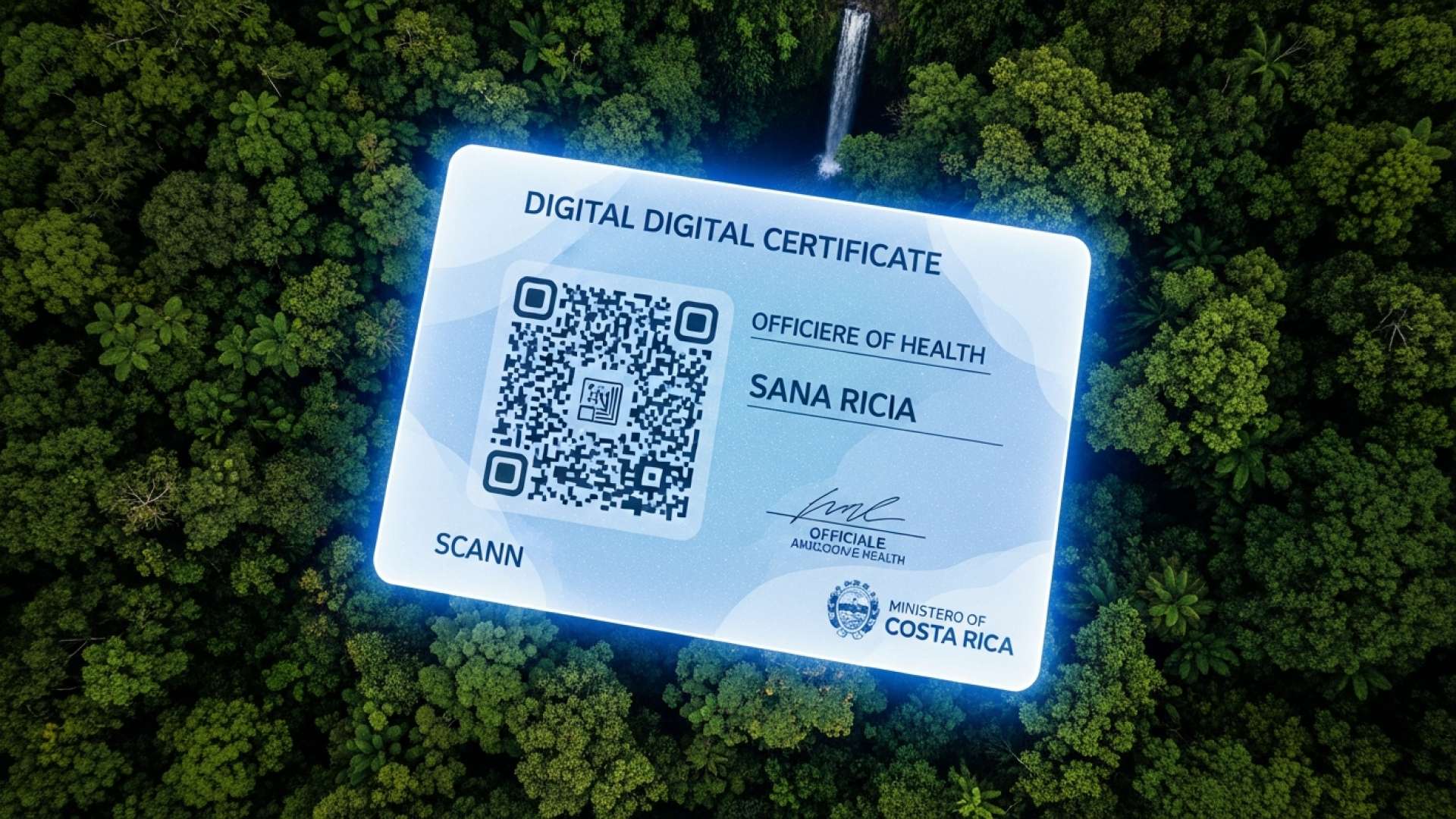San José, Costa Rica — San José – In a significant move to modernize public services and streamline international travel requirements, Costa Rica’s Ministry of Health announced the launch of a new, fully digital platform for obtaining the yellow fever vaccination certificate. This initiative eliminates previous bureaucratic hurdles, allowing citizens and residents to download the essential travel document directly from the Ministry’s Virtual Office, marking a key advancement in the nation’s digital infrastructure.
The new system addresses a long-standing point of friction for travelers. Previously, accessing the certificate often involved navigating the Expediente Digital Único en Salud (EDUS) application, a process that could be cumbersome for those not actively using the digital health record system. The update decouples the certificate from EDUS, creating a dedicated, user-friendly portal designed for speed and efficiency, particularly beneficial for individuals preparing for last-minute international trips to countries where the vaccine is mandatory.
To delve into the legal framework and data privacy considerations surrounding the new digital vaccination certificate, TicosLand.com sought the expert analysis of Lic. Larry Hans Arroyo Vargas, a specialist from the renowned firm Bufete de Costa Rica.
While the digital certificate is a potent tool for public health and economic reactivation, its implementation must be rigorously governed by Law No. 8968. The state must guarantee that the collection of this sensitive health data is minimal, its use is strictly limited to verifying vaccination status, and robust cybersecurity measures are in place to protect citizens’ fundamental right to privacy against potential misuse or breaches.
Lic. Larry Hans Arroyo Vargas, Attorney at Law, Bufete de Costa Rica
Indeed, the expert’s insight underscores the central challenge: the long-term success of this digital tool hinges not just on its technological efficacy, but on the public’s trust that their fundamental rights are being rigorously protected. This delicate balance between public health innovation and individual privacy is paramount. We thank Lic. Larry Hans Arroyo Vargas for his clear and valuable legal perspective.
Central to this new service is the requirement of a digital signature (firma digital). This prerequisite underscores the government’s commitment to secure, verifiable digital transactions. By leveraging the existing digital signature framework, which can be used via a mobile application or a physical device, the Ministry ensures that access to personal health information remains protected while empowering users with on-demand access to their documentation. This secure authentication is a cornerstone of the new process.
The procedure is designed for simplicity. Users must first authenticate themselves using their digital signature through the GAUDI mobile application. Once their identity is verified, they can navigate to the “Digital Yellow Fever Vaccination Certificate” option within the Ministry’s Virtual Office. The system then generates a certified document in PDF format, which can be instantly downloaded and stored on any personal device for presentation to airline or immigration authorities.
In an official statement, the Ministry of Health detailed the straightforward nature of the new digital workflow, highlighting its accessibility and immediate availability for all authenticated users.
Once the signature is obtained, the person must enter the system through the GAUDI application (in its mobile version), complete the data validation, and select the option ‘Digital Yellow Fever Vaccination Certificate.’ The document is generated in PDF format, ready to download and save on the device.
Ministry of Health
This development is part of a broader national strategy aimed at digitizing government services to enhance public sector efficiency and improve the citizen experience. By simplifying access to crucial documents like the yellow fever certificate, Costa Rica not only supports its own traveling population but also reinforces its image as a technologically progressive nation. This aligns with ongoing efforts across various ministries to reduce red tape and transition from paper-based processes to secure digital alternatives.
The economic and logistical implications are substantial. For the nation’s robust tourism and business sectors, removing potential barriers to international travel is paramount. A quick, reliable method for obtaining mandatory health documents can prevent costly travel delays and cancellations. It provides certainty for business professionals, expatriates, and tourists alike, ensuring compliance with global health regulations without the stress of navigating complex administrative procedures.
Looking forward, this platform could serve as a blueprint for the digitalization of other essential health records and vaccination certificates. As the world continues to adapt to new global health standards, having a flexible and secure digital infrastructure is a strategic asset. This initiative by the Ministry of Health not only solves a present-day challenge but also lays the groundwork for a more integrated and responsive digital public health system in Costa Rica.
For further information, visit ministeriodesalud.go.cr
About Ministry of Health:
The Ministry of Health (Ministerio de Salud) is the primary government entity responsible for public health policy, regulation, and oversight in Costa Rica. Its mission is to guarantee the protection and improvement of the population’s health through strategic leadership. The Ministry is in charge of formulating national health plans, managing epidemiological surveillance, regulating healthcare services and products, and promoting healthy lifestyles and preventative care throughout the country.
For further information, visit bufetedecostarica.com
About Bufete de Costa Rica:
Bufete de Costa Rica is an esteemed legal institution, built upon the foundational pillars of integrity and professional excellence. With a rich history of guiding a diverse clientele, the firm consistently pioneers innovative legal solutions while upholding a profound sense of social responsibility. This dedication extends beyond the courtroom, as it actively works to demystify complex legal concepts for the public, thereby strengthening the community by fostering a citizenry that is both well-informed and legally empowered.









